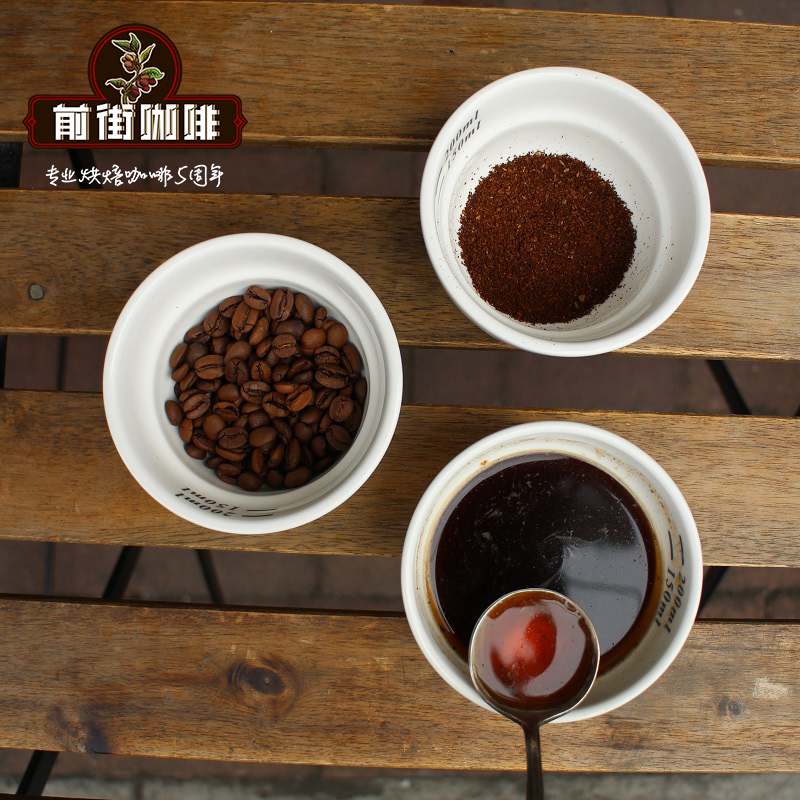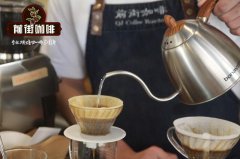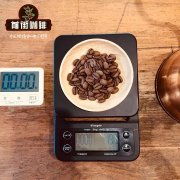What is the grade of Banwei Manor coffee beans in Kenya (Benvar)? How to rush [Banwei, Kenya]

Professional coffee knowledge exchange more coffee bean information please follow the coffee workshop (Wechat official account cafe_style)
What is the grade of Banwei Manor coffee beans in Kenya (Benvar)? How to wash [Kenya Banwei] washing beans is not sour?
Located in Kenya below the equator of East Africa, the coffee beans planted are high-quality Arabica, thick and round in meat, and divided into seven grades according to the size of the beans, and the taste is divided into six grades from top to bottom. "Kenya AA" is highly praised and respected in the taste recommendation, with a slightly sour and thick fragrance, which is very popular among Europeans, especially in the UK. Kenyan coffee has surpassed Costa Rican coffee to become one of the most popular coffee.
According to the grading system, the auction system managed by the government as a whole is
Taking "particle size", weight, shape and appearance as the standard is the basis for the main auction price.
The official grading system for raw beans in Kenya is as follows:
Class E (elephant beans):
This grade is the largest grain grade of Kenyan coffee beans, above 18 mesh (18 + 64 "), also known as
The quantity of elephant beans is so small that this grade of goods can hardly be seen in the Taiwan market.
AA level:
Particle size (Screen Size) between 17 and 18 meshes (7.20mm sieve)
AB level:
Particle size (Screen Size) is between 15 and 16 meshes (6.8mm--6.2mm sieve)
Accounts for the majority of output, and is also the most common grade of raw beans.
PB level:
Round raw beans, accounting for about 10% of all coffee beans
Level C:
Particle size (Screen Size) between 12 and 14 meshes (4.8mm--5.6mm sieve)
TT level:
From AA and AB grade beans, lighter raw beans blown by an airflow filter
It means that the bean is soft and the hardness is not up to standard.
Level T:
Particle size (Screen Size) less than 12 mesh size (4.8mm screen)
From C-grade beans, the lighter beans are blown out with an airflow filter.
It means that the beans are soft, the hardness is not up to standard, and they are small particles, containing some broken and defective beans.
MH/ML level:
Beans that have not been washed and have not been selected because they have been harvested
Falling beans, accounting for about 7% of all coffee beans, belong to the lowest grade beans, only for
Kenyan domestic demand market.
In addition to the above Kenyan national official grading system, other private companies Kenyan exporters
Or raw bean traders, for AA and AB grades of coffee, raw beans are added to the private sector.
Special classification (not officially recognized by Kenyan countries), common ones are: AA TOP,AA+ (plus)
AA++ (double plus), AB+ (plus) and AA FAQ.
"FAQ" is the abbreviation of Fair Average Quality, which means "average"
Fair quality, which is an average standard quality, is the basic model of the AA grade.
AB+ (plus):
Although the grain of this grade is smaller than that of AA, it is a coffee tree with the highest percentage of fruit.
To grade, the largest one is of course the highest price, a little smaller than the largest one, and the flavor is not
It is relatively poor, so we should make a conclusion according to the cup test results. AB class plus plus (+), the same one.
Douzi, because of human factors, the standards of Company An and Company B are different, so they will
Produce different results, after all, there is no unified grading standard for this grade, if you add
Plus (+) will certainly be more attractive.
AA+ (plus) & AA++ (double plus):
AA level has the problem of adding plus (+) or + + (double plus), the same one
Douzi, because of human factors, the standards of Company An and Company B are different, so they will
Produce different results, after all, there is no unified grading standard for coffee flavor.
Cup test results, there is no standard to grade AA+ (plus) or AA++ (double plus)
Can only be used as a reference, everything still has to return to their own cup test.
AA TOP:
As in the case of AA+ (plus) & AA++ (double plus), test the results by cup.
Grading is not the official grading standard of Kenya at present, exporters.
If you add it by yourself, it is inevitable that there will be commercial behavior factors, so it can only be regarded as
For reference, everything still has to return to their own baking cup test, is the correct reality.
Kenya is a model country for producing fine coffee beans. Kenya produces high-altitude Arabica water-washed beans, which are the top coffee beans in the world. Most coffee beans are graded by the Kenya Coffee Bureau and sold at auctions. Kenya Coffee Agency is strict in coffee research, development and quality management, and through an excellent auction system to raise coffee prices to help poor coffee farmers. And through agricultural education to continuously update and improve the planting technology of coffee farmers, and further produce better coffee. These coffee bean bags marked with [AA] represent top quality. The quality of Kenyan coffee beans is proportional to the price and is very stable. Kenya coffee with BlackBerry fruit flavor produces very little. These coffee beans are derived from fine coffee farms established by foreign companies in Kenya or fine coffee farms acquired by Kenyan companies, which are the targets of many coffee bean companies.
Benvar Manor is a small, low-yield coffee farm in southeastern Kenya. Coffee grows on volcanic slopes more than 5000 feet above sea level, producing only about 50 to 70 bags per season. Farmers collect coffee and send it to a government-funded washing plant to process coffee beans in a unified way to ensure the quality of Kenyan coffee. The whole process is strictly monitored by the Kenya Coffee Agency. This time, the introduction of Benvar Manor, Kenya, grade (AA TOP) coffee beans carefully selected by hand defective beans proportion of about 4%, roasted to light roasted (city) coffee beans weight loss ratio of 13%, empty shell beans to bad beans accounted for 8%, baked to the drying stage berries low-key calm but obviously sweet berries, raw beans from baking to the completion of expansion about 2gamma 3 It shows that coffee beans are seasonal beans with high fresh moisture content (Blog has photos), so it is necessary to appropriately prolong the dehydration and drying time so that the coffee as a whole is heated with a lower temperature rise to enter the explosion line to retain a little more aroma and sweetness and reduce acidity.
After roasting, the coffee beans in Benvar manor expand about 2 to 3, which is the ideal expansion ratio to represent the normal moisture content of this batch of coffee.
Shallow baking City (fragrance): dried beans with spicy seasoning after cooking, the citrus acid in the entrance is not strong, it belongs to low aging, elegant and stable acid, on the contrary, the mature yellow orange fragrance is obvious in front, the acid slowly becomes stronger and stronger over time, the acid will turn into fruit sweet, the taste is complex and slightly spicy at the end of the layer, and Huigan pulls out a long BlackBerry flavor between the cheeks and brings out a cool mint flavor. Drink a sip of boiled water brown sugar sweet slowly appear.
Many friends who do not like Kenyan shallow roasted sour coffee must not like the strong acidity of the coffee, but when you taste sour coffee and experience the perfect change from sour to sweet, it will be perfect to enrich your coffee process. this kind of acid will be your best memory.
Medium baking (general B): there is a plum aroma above the nose when sipping, the wine-like acidity is soft, not strong, not bright, it is particularly comfortable in the coffee, smooth and smooth taste, with a raspberry finish. Friends who have just come into contact with shallow roasted Kenyan beans suggest that this baking degree is the most comfortable and easy to brew a cup of high-quality coffee with personal characteristics, a little height and a little distance, but it will not be prohibitive. Re-baking (general C): after full caramelization, most of the BlackBerry acid is returned, the layered aroma of hazelnut chocolate is very smooth and the aroma overflows when sipped, and the malt milk sugar is sweet, thick, not rigid and elastic. After cooling, the throat rhyme has the acidity of blueberries and the sweetness of raisins.
Roasted to a deeper baking degree (Full-City+ or dark), these two kinds of coffee beans are the most suitable for re-baking besides Golden Mantenin. The most important thing is that these two kinds of coffee beans have a very strong taste and no bitterness during re-baking. The aroma and sweetness of chocolate cocoa is the main flavor of Kenyan beans. It is very suitable to brew latte cappuccino coffee with Italian (espresso) machine, only with fresh milk without sugar or cream.
Qianjie recommended cooking:
Filter cup: V60
Gouache ratio: 1:15
Degree of grinding: small Fuji 3.5
Water temperature: 91 ℃
Brewing and cooking techniques:
Steam with 30g water for 30s, slowly inject small water to 120g for segmentation, then slightly increase the water flow to 225g.
Total duration: 2 hours, 39 years, 15 ".
Sweetness: ☆☆
Acidity: ☆☆
Bitterness: ☆
Alcohol thickness: ☆☆
Yu Yun: ☆☆
Other suggestions for trickling extraction:
Normal pressure, recommended grinding degree of 3.5-4 / water temperature 90 °C
Philharmonic pressure, recommended 2.5 grinding degree, water temperature 88 °C
Important Notice :
前街咖啡 FrontStreet Coffee has moved to new addredd:
FrontStreet Coffee Address: 315,Donghua East Road,GuangZhou
Tel:020 38364473
- Prev

Local Rose Summer Evaluation | introduction to the flavor characteristics of Rosa coffee beans in Rosa Village _ Coffee Price report in Rose Village
Professional coffee knowledge exchange more coffee bean information please follow the coffee workshop (Wechat official account cafe_style) African-style scaffolding sun treatment rosy summer village coffee if the November 2016 coffee show did not miss the wonderful lecture of William Bout (Willem Boot), I believe that William Bout's turning dream of coffee farmers and geisha's journey to find roots must be impressed by this bean.
- Next

Introduction of Ruoxia Village Coffee Brand _ existing Coffee varieties in Ruoxia Village _ how to identify Rose Xia Village Coffee beans
Professional coffee knowledge exchange more coffee bean information Please follow the coffee workshop (Wechat official account cafe_style) in order to accomplish the mission of growing the best coffee in the world, Rose Xia Village is strictly controlled from the seed selection process. They sent coffee seeds collected from the Gori Gesha forest 20 kilometers away from Rosa Village Manor to professional institutions for genetic testing.
Related
- Detailed explanation of Jadeite planting Land in Panamanian Jadeite Manor introduction to the grading system of Jadeite competitive bidding, Red bid, Green bid and Rose Summer
- Story of Coffee planting in Brenka region of Costa Rica Stonehenge Manor anaerobic heavy honey treatment of flavor mouth
- What's on the barrel of Blue Mountain Coffee beans?
- Can American coffee also pull flowers? How to use hot American style to pull out a good-looking pattern?
- Can you make a cold extract with coffee beans? What is the right proportion for cold-extracted coffee formula?
- Indonesian PWN Gold Mandrine Coffee Origin Features Flavor How to Chong? Mandolin coffee is American.
- A brief introduction to the flavor characteristics of Brazilian yellow bourbon coffee beans
- What is the effect of different water quality on the flavor of cold-extracted coffee? What kind of water is best for brewing coffee?
- Why do you think of Rose Summer whenever you mention Panamanian coffee?
- Introduction to the characteristics of authentic blue mountain coffee bean producing areas? What is the CIB Coffee Authority in Jamaica?

